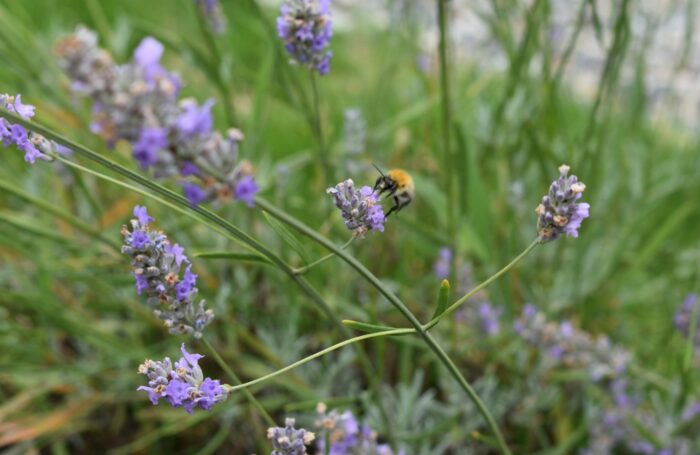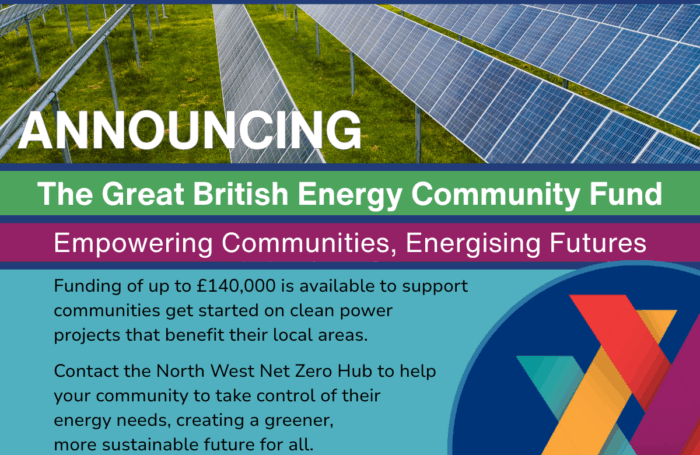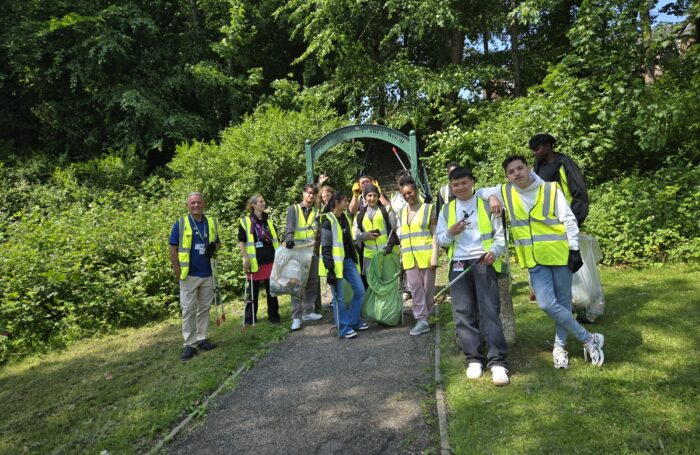We are shining a spotlight on the passionate individuals who are leading the way with their commitment to reducing waste – our Local Sustainability Champions. We caught up with Paul Watson from Greater Manchester Fire and Rescue to find out how he has become a zero-waste hero…
My name is Paul Watson and I’m a Fire Safety Inspector for GMFRS. I joined GMFRS in October 2022 after deciding to have a career change, I had previously worked in education for 25 years as a Secondary School Science/Biology Teacher at various schools across Greater Manchester.
I have always been a lover of wildlife and nature from an early age, but as I have become more knowledgeable and informed on environmental matters over the years, I have become more and more convinced that there needs to be significant change in direction by humankind relating to how we live on planet earth and how we interact with all of the other amazing flora and fauna on the planet we share. This has made me become much more conscious of the impact that my actions and the actions of others have on the world around us.
I currently live in the village of Heath Charnock near Rivington on the edge of the West Pennine Moors. I have lived in the area for just over 20 years and love it. I can walk from my door and be amongst nature and wildlife within a matter of a few minutes. The village is located within the borough of Chorley, where recycling facilities and provisions provided by Chorley Borough Council are generally very good. I can recycle a variety of materials via my kerbside collection schemes and a hole host of other items and materials at the local recycling centre.
Towards the end of 2018 I was becoming increasingly alarmed at the amount of waste plastic that I was producing and throwing away. I decided that my ‘New Years Resolution’ for 2019 would be to only put my 120L general household waste bin out ONCE in the whole of 2019 at the end of the year and I did it, plus it wasn’t even full!

The ‘easy win’ changes
Some changes were very easy, but others I found very difficult and to this day I still struggle with one or two waste streams. Over the past few years, I have changed a number of actions associated with my purchases and consequently my production of waste. Some ‘easy win’ changes that I have adopted include:
- When purchasing fruit and vegetables I no longer use the single use bags provided in shops. I purchased a set of reuseable bags that I can use over and over again.
- I made the decision to purchase as many products as I can from ‘Refill’ shops, refilling jars, bottles, containers and boxes with food, cleaning products and personal hygiene items. I have not thrown away a single cleaning product bottle (washing up liquid, washing powder, cleaning sprays, etc) since 2018. I use Flowersmiths in Horwich, Reeds Refillary in Chorley and Fairview Cleaners in Adlington.

- I have reduced the number of plastic items that I purchase by switching to glass, cans or tetra packs which are all much easier and better to recycle.
- I try to reuse any plastic containers that I do buy. I donate yoghurt pots to a local school for using in plant growing sessions. I take a wide variety of plastic containers (butter, cream cheese, humous) to the local refill shop that use them again for customers who wish to purchase some items but haven’t brought a container.
- I purchased two bags of freezer bags and a load of plastic storage boxes. I use these over and over again to store food in the freezer and batch cook so that I rarely ever have any food waste. The only food waste I have are fruit and vegetables cuttings and skins which I put in my garden waste recycling bin or my neighbours compost bin.
- I purchase fruit and vegetables via local suppliers and once a month I purchase a Oddbox (www.oddbox.co.uk) delivery.

- I purchase plant based cloths and sponges (theseepcompany.com), replacing the plastic ones. Once used to the point where they are falling apart, they can go in the garden waste recycling bin or my neighbours compost bin.
- I recycle crisp packets, toothpaste tubes and blister packs via Terracycle (www.terracycle.com).

- I take all appropriate waste to the local recycling facility (electrics, batteries, wood, metals, etc).
- I recycle candle wax that I, friends and family collect through The Recycled Candle Company (The Recycled Candle Company – The Recycled Candle Company Ltd).
I would like to recommend the following books which I found very helpful and full of tips:
Say No To Waste and Say No To Waste – Both Harriet Dyer
The Rubbish Book – A Complete Guide to Recycling – James Piper
Turning the Tide on Plastic – Lucy Siegle
The most challenging aspects and items of being zero waste
Single use plastic items especially yoghurt pots/lids, snack and sweet wrappers and other single use soft plastics. In order to deal with all of these I started making ‘Ecobricks’ (Welcome to Ecobricks.org) using Oasis bottles that I collected from my Mum, who drinks a bottle per day. Now, some soft plastics can be recycled through collection points at supermarkets.

Over the years I have helped a variety of friends, family, colleagues and acquaintances to become more knowledgeable about environmental matters, recycling and wildlife/nature. I tend to try and help where I can, but I’m always careful to not be too forceful and pushy with individuals that may not necessarily be very responsive/supportive. At work I’m known as the ‘Recycling Police’ as I’m always educating colleagues on what can and can’t be recycled and clamping down on those who deal with their waste incorrectly/irresponsibly.
Finally, how to make a decent OASIS Eco Brick
Guide to making a ‘top quality’ Ecobrick!
- Find, wash and dry a 500ml ‘Oasis’ plastic drinks bottle. Tear off the soft plastic wrapping label.
- Collect up ‘single’ use soft plastic packaging, making sure that it is clean and dry.
- Cut up the soft plastics into small pieces, it doesn’t have to be tiny, just small.
- Stuff the cut up plastic into the bottle and pack it in with a wooden spoon handle.
- Keep packing the bottle until no more plastic will go in. Your target mass for a complete bottle is 167g minimum. My record mass is 269g! Most bricks are between 190g and 210g.
- Once your Ecobrick is complete, register it at (Welcome to Ecobricks.org) and donate it to a local project.
I’m currently at about 130 bricks. The idea is to collect enough to be able to build a raised bed or something similar in the grounds of a GMFRS/GMCA building to raise awareness of the issue of plastic waste which is choking our planet.



